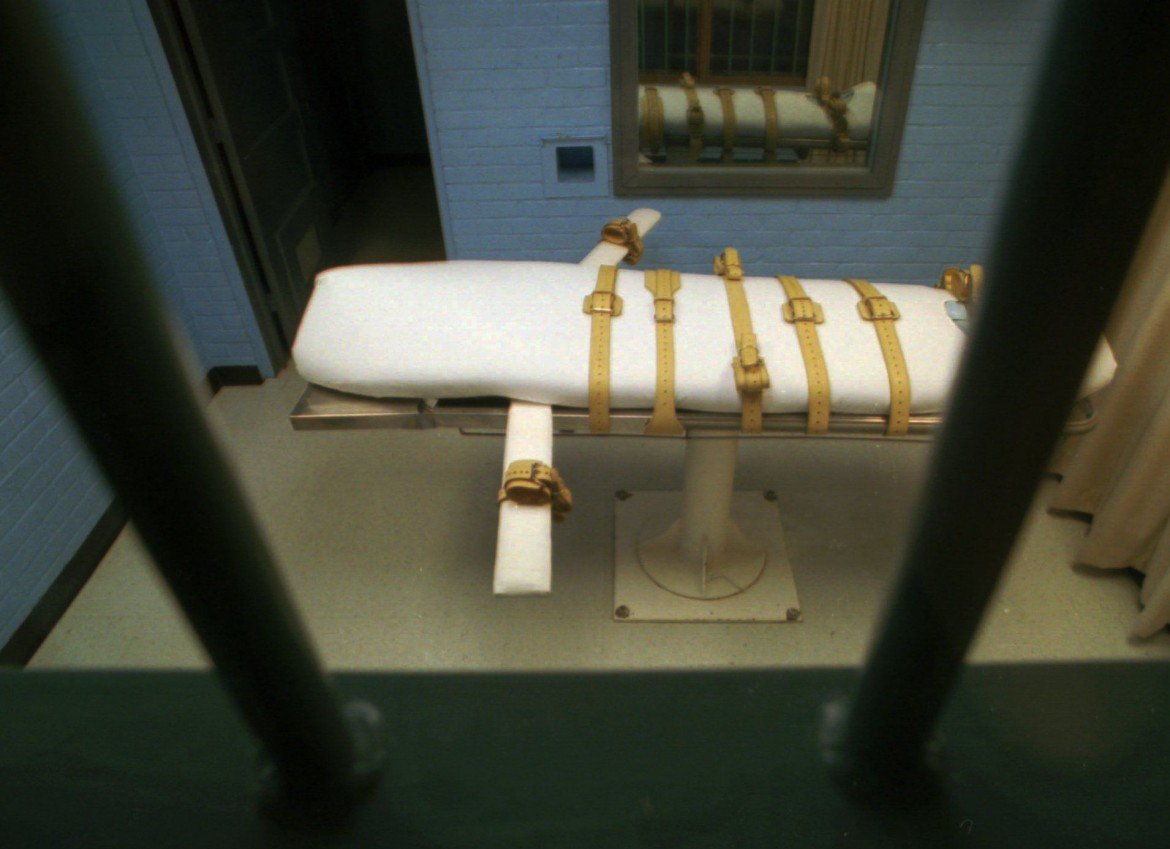United States
Pfizer’s move on death penalty puts U.S. in corner: end executions, or switch to the gas chamber?
The pharmaceutical company Pfizer this week joined a growing list of drug manufacturers who don’t want their products associated with state-run homicide.

Even the Pfizer pharmaceutical company has added itself to the list of drug manufacturers who refuse to sell products used for lethal injections in the United States. It decided that being associated with executioners is not the best brand image for a medical company, as Big Pharma has gradually taken a pass on the U.S. death industry.
“Pfizer makes its products to enhance and save the lives of the patients we serve,” Pfizer said in its press release this week. “Consistent with these values, Pfizer strongly objects to the use of its products as lethal injections for capital punishment.”
Before Pfizer, more than 25 other American and European drug manufacturers had already blocked the sale of drugs to states for use in executions. But Pfizer is the largest and therefore influential, and its decision will set a new standard for the global industry.
“With Pfizer’s announcement, all FDA-approved (U.S. Food and Drug Administration) manufacturers of any potential execution drug have now blocked their sale for this purpose,” Maya Foa, director of the death penalty unit for the London human rights group Reprieve, told The New York Times. “Executing states must now go underground if they want to get hold of medicines for use in lethal injection.”
The mutiny of the pharmaceutical companies caused a strong decrease in the number of death sentences in 2015, due to the lack of raw material.
But some states have tried to work around the problem, drawing from stocks of products not authorized by FDA. The feds seized some of these imports at the border. Others were compounds created by mixing various other drugs, but they didn’t work; they caused horrible deaths and produced a raft of court cases as the convicts’ lawyers increased pressure on the authorities for more transparency in the origin of lethal drugs.
The Big Pharma stance is a big step forward on the road to abolishing the death penalty in America but not the answer to the problem. The electric chair (used to kill, for example, Sacco and Vanzetti) and the gas chamber are still legal execution methods in several states.
The death penalty has always been controversial in America, and the debate over whether to abolish it definitively in the U.S. has carried on for decades. Lethal injection has always been perceived as the most “humane” method; if it is no longer available, it could amplify the voices of those who call capital punishment torture.
Capital punishment is formally outlawed in only 19 of 50 states. The first to abolish state execution was Michigan in 1846, followed seven years later by Wisconsin. Alaska, one of the most Republican and ultra-conservative states, abolished the death penalty in 1957, while it’s still legal in the liberal states of California and New York, though it is not used (the last in California was in 1914). In New York, the State Supreme Court declared the death penalty unconstitutional, but the state legislature has not put forward or ratified a law that would abolish it altogether. All death sentences have been commuted to life imprisonment without the possibility of parole.
During his speech to Congress last September, Pope Francis exhorted the members — particularly those in the Republicans ranks, who claim to be defenders of life — to abolish the death penalty and embrace their role as standard-bearers of freedom and the Western world model.
But an anti-death penalty stance has never been popular for presidential candidates, though in the last 20 years the number of Americans in favor has declined. In this election, Hillary Clinton proposes further restrictions on the death penalty but not its abolition, while Bernie Sanders, whose home state of Vermont eliminated capital punishment in 1964, is totally against it. Donald Trump, however, strongly supports and advocates death for anyone who kills a police officer.
Originally published at http://ilmanifesto.info/la-compagnia-farmaceutica-al-boia-usa-non-uccidete-piu-con-i-nostri-farmaci/ on 2016-05-15
